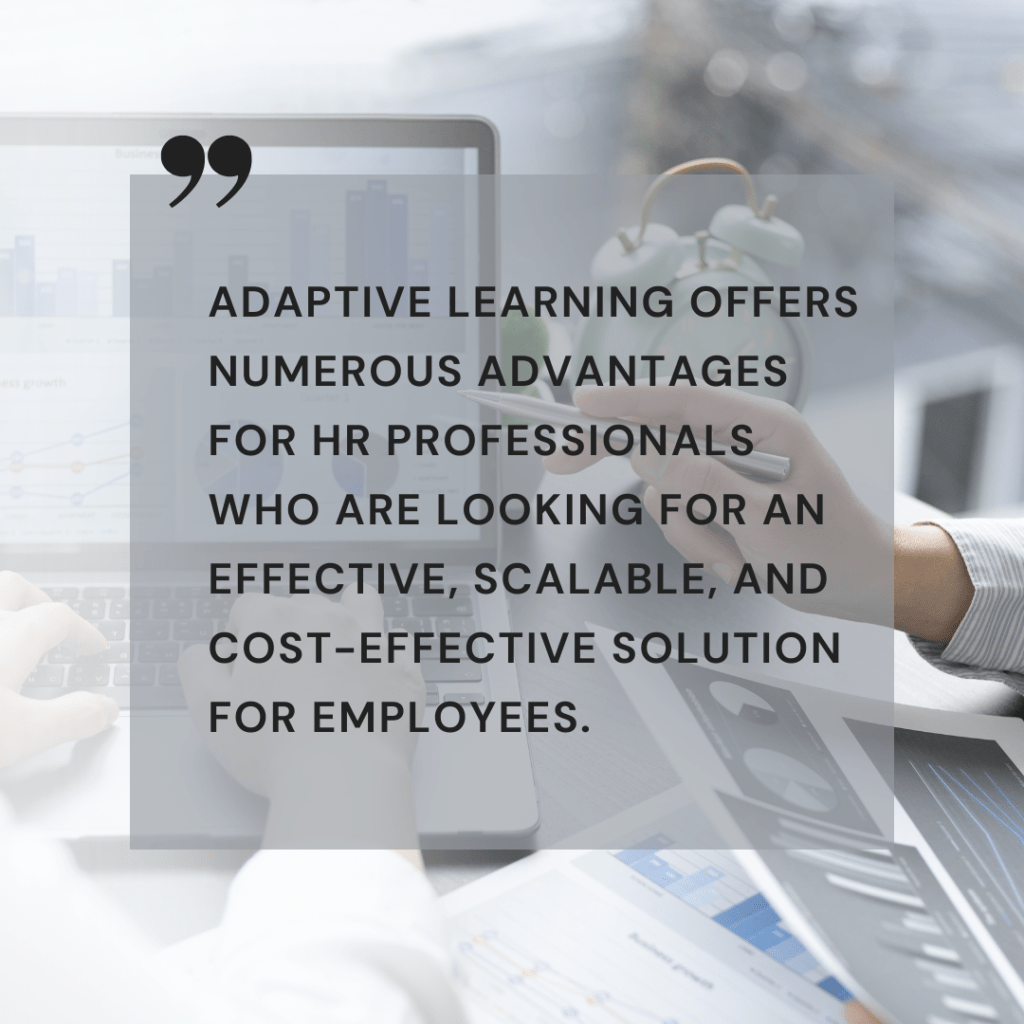Human Resources (HR) professionals are responsible for ensuring that their organization’s workforce is equipped with the skills and knowledge necessary to perform their jobs effectively. One of the challenges faced by HR professionals is how to deliver effective and engaging training to employees in a way that is both cost-effective and time-efficient. Adaptive learning offers a solution to this challenge by providing personalized and targeted training that can be delivered at scale. In this blog, we’ll explore why HR professionals should consider adopting adaptive learning for their employees.
What is adaptive learning?
Adaptive learning is a method of delivering educational content that adjusts to the individual needs of each learner. This is achieved through the use of technology that monitors a learner’s progress and adapts the content and delivery of training based on their performance. The goal of adaptive learning is to provide each learner with a personalized learning experience that maximizes their engagement and retention of information.

So why should HR professionals consider adaptive learning for their employees? Well below are few reasons:
Personalized learning
One of the biggest advantages of adaptive learning is that it provides personalized learning experiences for each employee. This means that the training can be tailored to the individual needs, interests, and learning styles of each learner. For example, if an employee is good at written communication but struggles with verbal communication, then an adaptive learning system can provide additional resources or practice exercises to help them master the material. This personalized approach not only improves the learning experience but also helps employees feel more engaged and invested in their training.
Time-efficient
Adaptive learning can be delivered in a time-efficient manner. Employees can learn at their own pace and on their own schedule. This means that they can complete training modules when it is most convenient for them, without having to worry about scheduling conflicts or time constraints. Additionally, adaptive learning systems can optimize the overall time needed for training by focusing on the areas where each employee needs the most help, rather than requiring them to spend time on material they have already mastered.
Cost-effective
Adaptive learning can be a cost-effective solution for HR professionals. Because it can be delivered online, it eliminates the need for expensive in-person training sessions, which can require travel, accommodations, and other associated costs. Additionally, the personalized nature of adaptive learning means that employees are more likely to retain information, which can lead to improved job performance and reduced costs associated with mistakes or errors.
Continuous improvement
Adaptive learning allows HR professionals to continuously monitor employee progress and identify areas where additional training or support may be needed. This ongoing feedback loop can help HR professionals identify gaps in their training programs and adjust their approach accordingly. By continually improving their training programs, HR professionals can help ensure that their employees are always equipped with the skills and knowledge necessary to perform their jobs effectively.
Better engagement and retention
Adaptive learning can improve employee engagement and retention of information. By providing personalized learning experiences, employees are more likely to feel invested in their training and motivated to learn. Further, adaptive learning systems can adjust the delivery of content to match the learning style and preferences of each employee, which can further improve engagement and retention.
Scalability
Adaptive learning is a scalable solution for HR professionals. Because it can be delivered online, it can be easily scaled to meet the needs of a large or distributed workforce. This means that HR professionals can provide consistent and effective training to all employees, regardless of their location or schedule.

Conclusion
Adaptive learning offers numerous advantages for HR professionals who are looking for an effective, scalable, and cost-effective solution for employees.





Leave a Reply